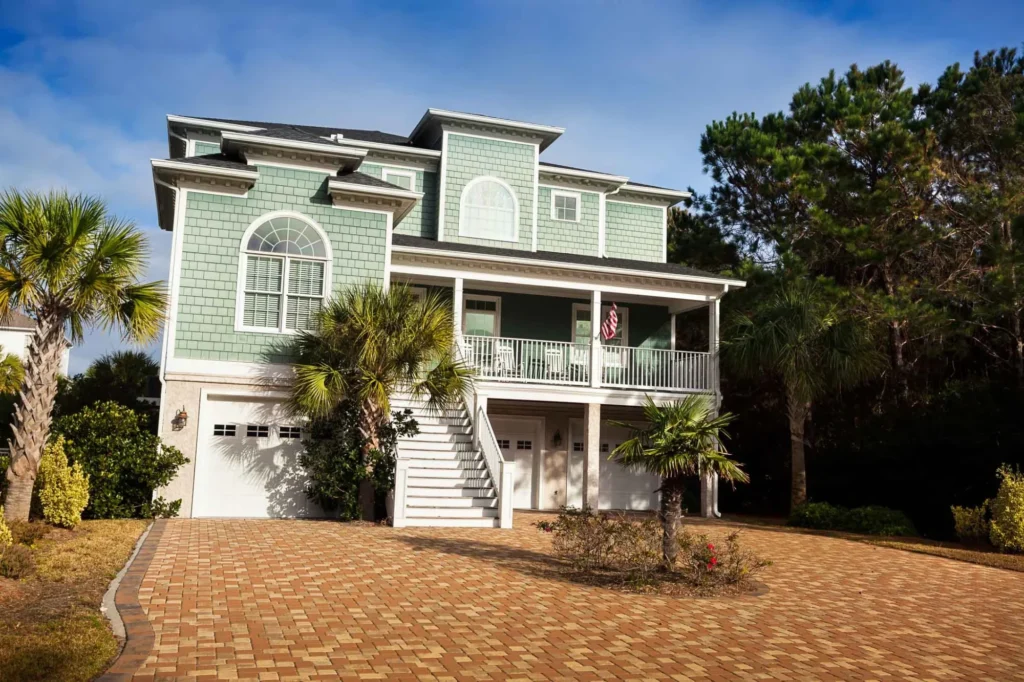
Hornet Control in North Charleston, SC — Fast, Family-Safe Removal
North Charleston, South Carolina, known for its vibrant culture, historical significance, and expanding commercial developments, faces the challenge of dealing with hornet and yellowjacket infestations. The region's warm and humid climate, along with its diverse mix of residential, commercial, and industrial properties, creates ideal conditions for these stinging insects. North Charleston's rich landscaping—featuring lush vegetation, parks, and dense tree canopies—offers perfect hiding spots for hornet nests, which can pose a serious threat to homeowners and their families.
Whether you're living in the heart of North Charleston, near the historic Olde Village, or in newer developments around the Tanger Outlets and the Park Circle area, hornets can quickly take over. If you notice increased hornet activity or suspect nests on your property, it’s time to act quickly. All U Need Pest Control specializes in fast, discreet hornet removal tailored to the unique environment of North Charleston. Our comprehensive pest control services are designed to keep your family, pets, and guests safe while ensuring you can enjoy the outdoors without the risk of stings.
Pest Control Services in North Charleston, SC
- Ant Control
- Bed Bug Control
- Beetle Control
- Cockroach Control
- Flea Control
- Home General Pest Control
- Millipede Control
- Mosquito Control
- Pantry Pest Control
- Rat & Rodent Control
- Scorpion Control
- Silverfish Control
- Spider Control
- Stink Bug Control
- Termite Control
- Tick Control
- Wasp Control
- Winter Control
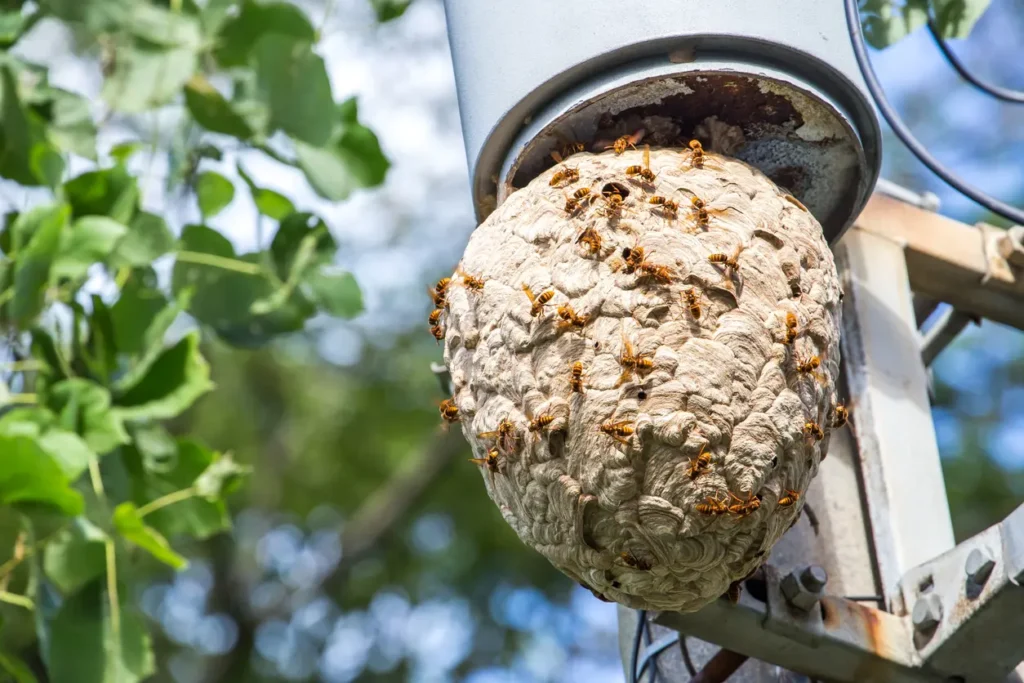
How to Get Rid of Hornets in North Charleston, SC
North Charleston’s humid climate and frequent summer thunderstorms create the perfect breeding ground for hornets. The region’s mix of suburban homes, commercial areas, and green spaces makes it a prime location for hornets to establish nests. While DIY methods may seem like a quick solution, disturbing a hornet nest can provoke aggressive swarming, putting your safety at risk. The best course of action is to rely on professional pest control that understands local hornet species and knows how to handle the unique environmental factors in North Charleston.
A professional hornet control plan for North Charleston includes a thorough inspection, safe nest removal, targeted treatments, and exclusion strategies. The area’s unique architecture, particularly in historic neighborhoods and newer homes with crawl spaces, requires a tailored approach. Thick vegetation, such as shrubs and trees, combined with the typical raised foundations of many homes, offers ideal nesting sites for hornets. Our experts will ensure that nests are safely removed and that your property is protected against future infestations.
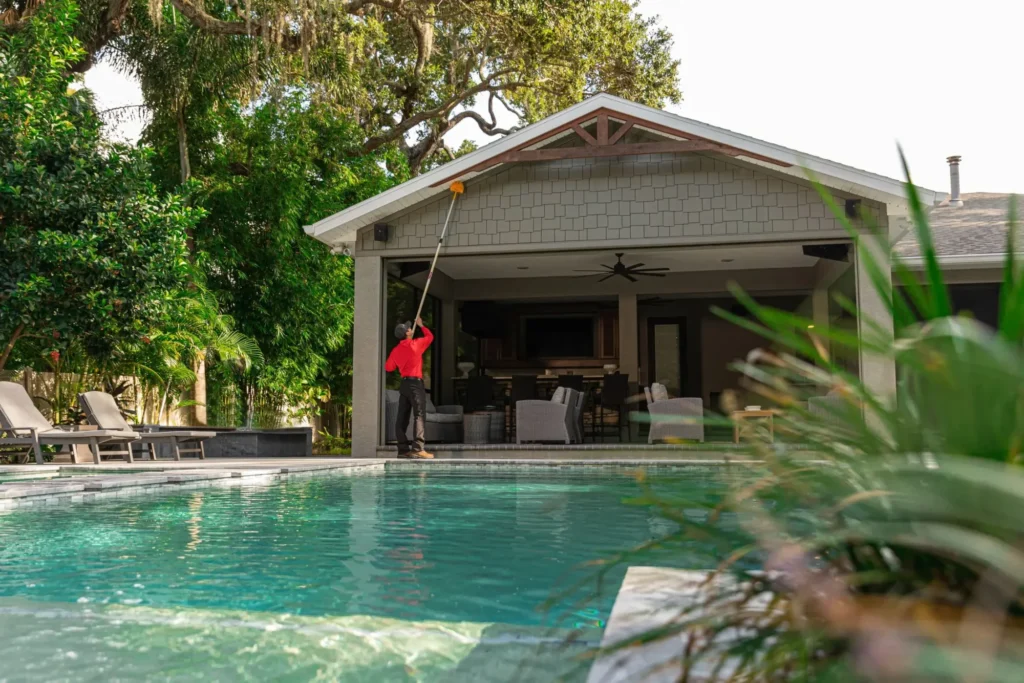
Hornet Treatment in North Charleston, SC
The hot climate, frequent rain, and architectural characteristics of North Charleston present unique challenges for hornet control. We provide customized hornet treatment solutions to address the specific needs of North Charleston residents, ensuring both effective results and long-term protection.
A Comprehensive Inspection
The first step in our hornet control process is a thorough inspection of your property. Our technicians will check common nesting sites such as eaves, soffits, porch rafters, attic vents, and fence lines. In North Charleston, where many homes have raised foundations and small gaps around vents and windows, hornets often nest in concealed areas like crawl spaces or behind decorative trim. Additionally, we inspect trees, shrubs, and ivy-covered structures, as they are frequent locations for hornet nests. By understanding your property’s layout and local environmental factors, we can develop a precise and effective action plan.
Nest Removal
Nest removal requires professional expertise to ensure the safety of all individuals involved. In North Charleston, hornets are most active in the late afternoon and early evening. We select the ideal time to remove nests, usually at dusk or dawn, when hornet activity is at its lowest. Our team uses protective gear and specialized equipment to neutralize the colony before carefully detaching and disposing of the nest. Whether the nest is located in trees, attics, or structural voids, our professionals use methods that ensure complete colony eradication without disturbing your home’s structure.
Targeted Treatments
Instead of using broad, unspecific sprays, we apply targeted treatments directly to areas of high hornet activity. By focusing on the nest itself, as well as the primary ingress and egress points, we ensure fast and effective hornet control. In North Charleston, where thick vegetation and large trees provide ample hiding spots, we are careful to treat these areas, preventing future nesting in hidden locations. Our treatments are also safe for pets and family members, ensuring that your home remains protected while minimizing any risk of exposure.
Exclusion
Once we’ve removed the nest, we take proactive steps to prevent future hornet activity. In North Charleston, where homes often feature raised foundations and wooden exteriors, sealing entry points is crucial. We close off gaps around utility lines, screen vents, and ensure that soffits and fascia are properly sealed. Additionally, we assess your property’s landscaping, making recommendations for trimming trees and shrubs to improve visibility and reduce shaded, sheltered areas that hornets favor for nesting.
Integrated Pest Management
Our Integrated Pest Management (IPM) approach ensures that hornet control in North Charleston isn’t a one-time service but an ongoing commitment to your home’s safety. Through regular monitoring after storms or other weather changes, we stay ahead of any potential hornet activity. IPM is an adaptive strategy that accounts for the rapid growth of vegetation and the area’s seasonal weather patterns, ensuring that your property remains protected from future infestations.
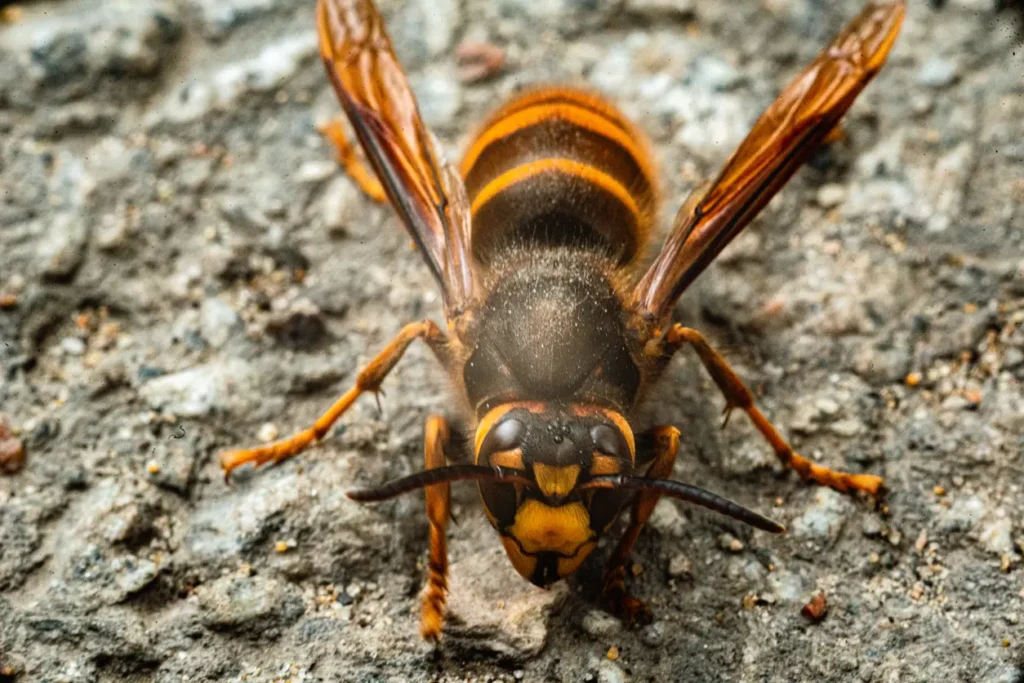
Signs of a Hornet Infestation in North Charleston, SC
In North Charleston, hornet nests can sometimes be difficult to spot, especially in areas with heavy tree cover or dense vegetation. Recognizing the early warning signs of hornet activity can help prevent larger infestations and ensure quick action. Pay attention to these common indicators:
Hornet Sightings
One of the first signs of hornet activity is the sighting of hornets themselves. If you notice hornets flying around a specific area, such as the eaves of your home, around porch beams, or near shrubs, there’s a high chance that a nest is nearby. In North Charleston, where homes are often surrounded by dense landscaping and trees, hornets are commonly found near outdoor spaces or trash areas, where they forage for food.
Increased Hornet Activity
Hornet activity tends to peak during the warmer months and can spike after thunderstorms, as rain pushes hornets out of their nests. In neighborhoods like Park Circle and the suburban areas around Dorchester Road, you might notice hornets swarming around areas with abundant trees or bushes. If you notice a sudden increase in hornet activity around specific areas, it’s a good idea to call a professional pest control service.
Hornet Nests
A hornet nest can be a telltale sign of an infestation. In North Charleston, where many homes are surrounded by large trees and lush vegetation, hornet nests are often found in the branches of trees or in the rafters of porches. Bald-faced hornets create large, gray, paper-like nests that can grow quickly and become dangerous as the colony expands. Yellowjackets, on the other hand, tend to nest in hidden areas such as wall cavities or under the ground.
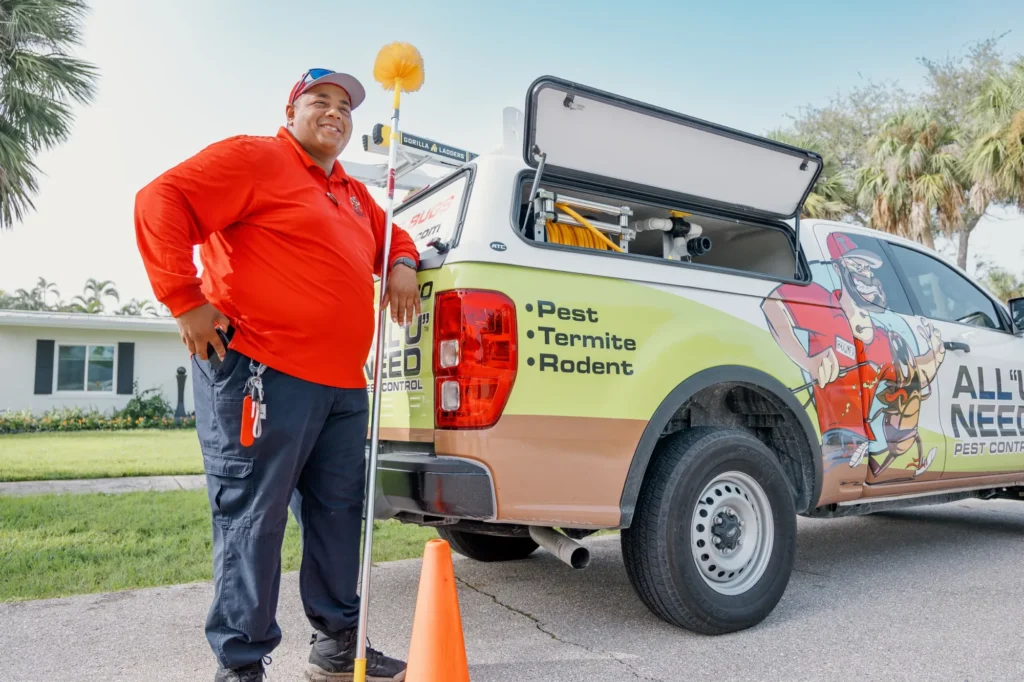
How to Check for Hornets in North Charleston, SC
If you suspect that hornets are nesting around your property in North Charleston, it’s important to check for signs of activity in a safe manner. Always observe from a distance and avoid disturbing the nest. Early morning or evening is the best time to monitor hornet activity. Here’s what you should look for:
- Repeated flight to a specific gap, soffit edge, or vine-covered section of the wall
- Paper-like nest material tucked in tree branches or higher in shrub canopies
- Buzzing or tapping sounds coming from ceiling or wall cavities, particularly near the porch or attic
If you notice these signs, don’t attempt to disturb the nest on your own. Hornets can be highly aggressive, and a professional should handle nest removal to ensure safety.
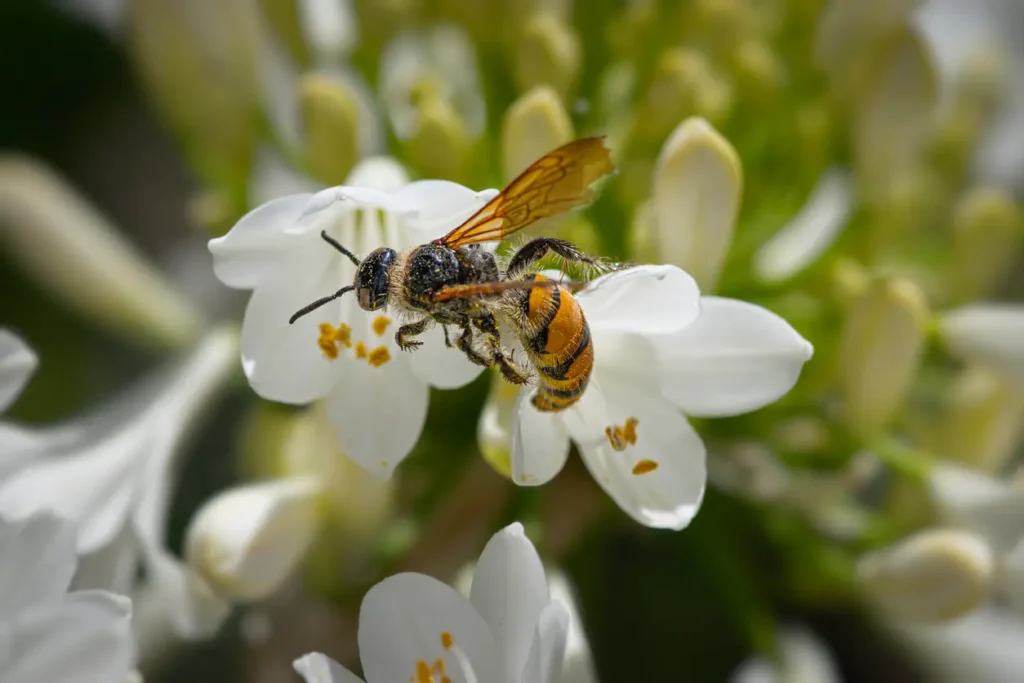
What Do Hornets Look Like in North Charleston, SC?
In North Charleston, several hornet species are commonly found, each with its unique features. Understanding the different types of hornets can help you identify the species on your property and take appropriate action.
Southern Yellowjacket
The southern yellowjacket is a small, fast-moving hornet with black-and-yellow banding. These hornets often nest in the ground or in structural gaps, such as cracks in siding or under sheds. In North Charleston’s older neighborhoods, yellowjackets frequently use small voids around foundation walls or in landscaping to establish their colonies.
Eastern Yellowjacket
The eastern yellowjacket is slightly larger than the southern variety and is often found nesting in attics, hollow walls, and ground voids. In North Charleston’s suburban areas, where homes are surrounded by trees and open fields, yellowjackets often build large, hidden nests inside structural gaps. These hornets are particularly aggressive when disturbed and can sting multiple times.
Bald-Faced Hornet
Bald-faced hornets are large, black-and-white wasps that build exposed nests in trees, bushes, or on the sides of homes. In North Charleston, bald-faced hornet nests are often located in tree canopies or around porch eaves. These hornets are known for their aggressive behavior and can defend their nests with rapid, painful stings. Their nests are often gray and football-shaped, easily spotted in late summer when the colony is at its peak.
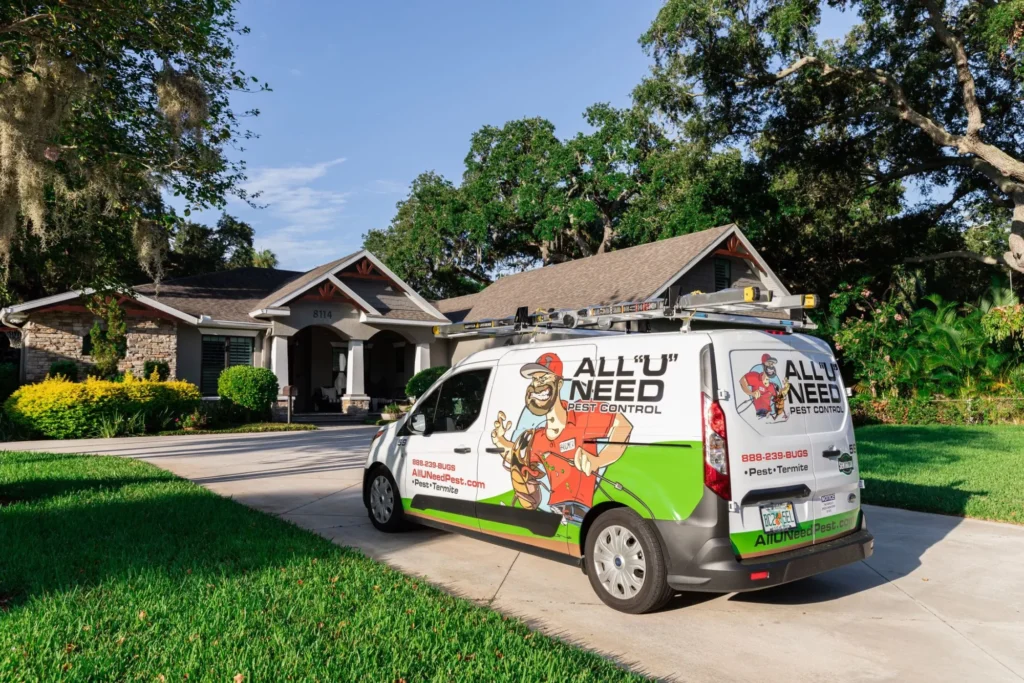
Eco-Friendly Solutions in North Charleston, SC
Given the importance of preserving North Charleston’s natural environment, our pest control approach emphasizes eco-friendly solutions that keep both your home and the local ecosystem safe. We focus on minimizing chemical usage while providing effective hornet control.
Natural Repellents
In low-risk areas of North Charleston, we use natural repellents derived from botanical ingredients to discourage hornets from nesting. These repellents are most effective when applied around garden areas, patios, or around water features, reducing the chances of hornets establishing a nest in those zones. While natural repellents are not a substitute for professional nest removal, they can help discourage hornet activity and prevent re-nesting.
Habitat Modification
One of the simplest and most effective ways to prevent hornet infestations is to modify the habitat around your home. In North Charleston, where heavy vegetation and dense trees are common, maintaining a well-kept yard and garden can greatly reduce the chances of hornet nests. Trimming trees, removing fallen branches, and ensuring that shrubbery is kept to a minimum can limit the shaded areas that hornets prefer.
Exclusion Techniques
After nest removal, we implement exclusion techniques to ensure that hornets do not return. In North Charleston, we seal any potential entry points, such as gaps around utility lines, vents, or soffits. These measures prevent hornets from accessing your home’s interior and establishing new nests. We also provide recommendations on how to maintain proper airflow while preventing future hornet problems.
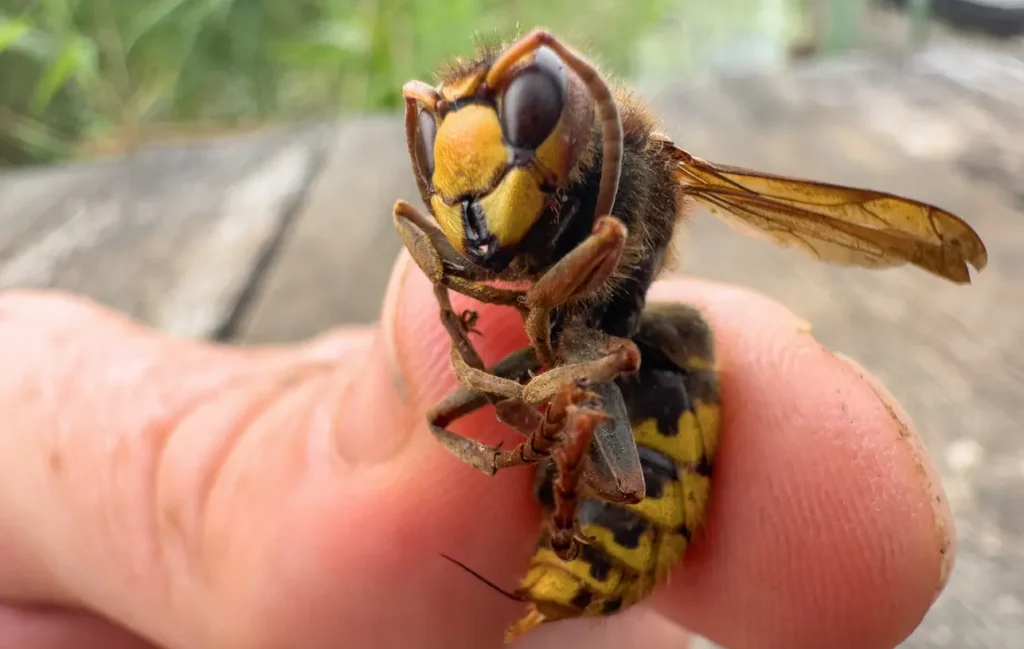
How to Prevent Hornets in North Charleston, SC
Preventing hornets from nesting around your property in North Charleston requires a combination of proactive measures, landscape management, and regular maintenance. With the city’s warm climate, dense tree coverage, and rapid plant growth, hornets can quickly establish nests. These simple, yet effective, steps can help keep your home free of hornet infestations.
Reduce Outdoor Clutter
Outdoor clutter such as stacked firewood, overturned pots, and leftover materials can provide hidden spots for hornets to nest. In North Charleston, homes surrounded by dense vegetation, especially in neighborhoods like Park Circle and the areas near the Ashley River, can become perfect environments for hornets to thrive if these cluttered areas aren’t managed. Keeping your yard clean, removing unused items, and properly storing outdoor equipment helps eliminate potential nesting sites.
Trim Vegetation
In North Charleston, homes are often surrounded by lush landscaping, including trees and shrubs that provide ideal shelter for hornets. Regularly trimming back branches that touch the house and removing dense shrubbery around windows, doors, and porches can significantly reduce hornet attraction. By improving air circulation and increasing sunlight exposure, you make your property less inviting to hornets. Trimming trees and shrubs also helps prevent hornets from using these areas as entry points to your home’s structural voids, such as attics or crawl spaces.
Get Rid of Food Waste
Hornets are attracted to food sources, particularly sugary substances. In North Charleston, where outdoor barbecues and social gatherings are common, it’s important to clean up after meals to prevent hornets from being attracted to food waste. Ensure that trash bins are regularly emptied, and food scraps are cleared away immediately after outdoor events. If you have a compost pile, make sure it’s covered and properly managed to avoid attracting hornets.
Seal Trash Cans
To prevent hornets from foraging around your property, make sure all trash cans are tightly sealed. In North Charleston, especially during the summer months, hornets are highly attracted to trash bins that contain food waste. Be sure to choose trash cans with secure lids and place them away from your home, especially near entry points like doors and windows. Regularly clean your trash bins to remove any sticky residues that could attract hornets.
Cover Holes in Your Lawn
If you notice small holes or burrows in your yard, it’s important to have them inspected by a pest control professional before filling them in. In North Charleston, yellowjackets often nest in abandoned rodent holes, and filling in these holes without understanding the problem could push hornets closer to your home. Have a professional assess any voids in your lawn to prevent hornets from moving in and establishing nests.
Additional Preventive Measures :
- Use low-wattage porch lighting or opt for warmer spectrum bulbs during peak hornet flight times to minimize attraction
- Keep outdoor dining areas clean and covered when not in use to prevent hornet attraction
- Place hornet-aware signage around your property during active pest control treatments to alert guests to the potential risk
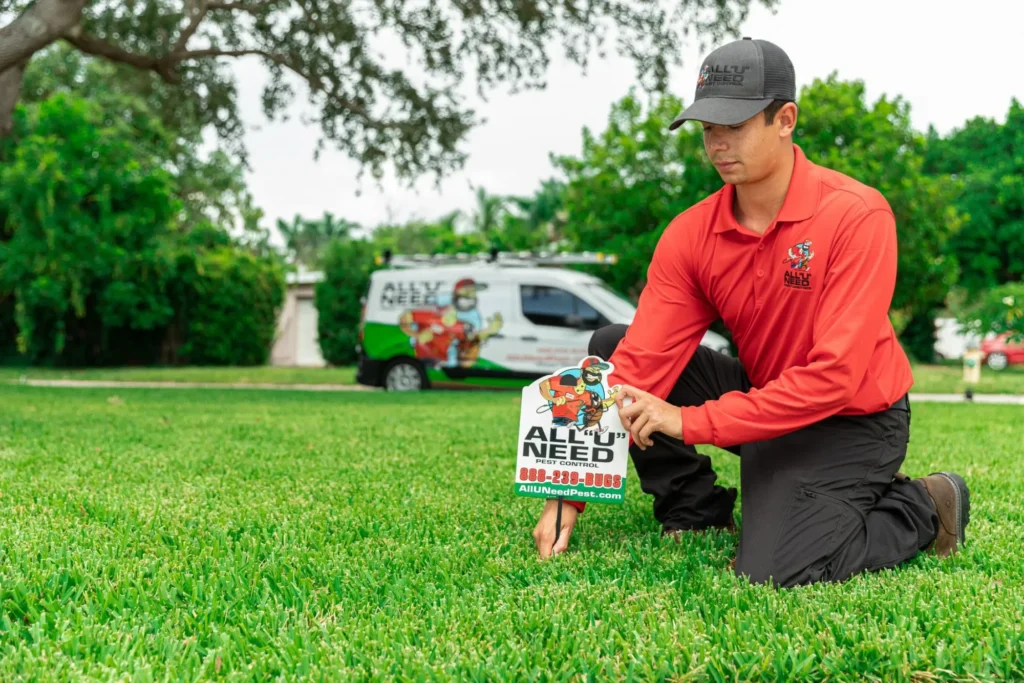
Why Choose All U Need Pest Control for Hornet Control in North Charleston, SC?
Hornet control in North Charleston requires a comprehensive, environmentally conscious approach that takes into account the region’s unique climate, architecture, and landscaping. At All U Need Pest Control, we specialize in providing tailored pest control solutions that address the specific needs of North Charleston residents. Whether you’re living in a historic neighborhood like Olde Village or a newer community near the Northwoods Mall, we offer efficient, safe, and family-friendly hornet removal services.
Our team is equipped with the knowledge and tools to handle hornet infestations in both residential and commercial properties. We take the time to understand the layout of your property, the local environmental factors, and your specific concerns to provide the most effective pest control solutions. From early detection to comprehensive removal and prevention, our goal is to ensure your home is safe from hornets all year round.
With years of experience serving North Charleston, we pride ourselves on offering prompt, reliable, and professional services that cater to the specific needs of each client. We believe in transparency, clear communication, and follow-up to ensure complete satisfaction.
When you’re ready to eliminate hornets from your home and prevent future infestations, contact us at 1 (888) 239-BUGS or reach out online for a free consultation. We’ll inspect your property, remove any hornet nests, and provide expert advice on how to keep your home safe from these stinging insects.
Location Contact:
419 N Cedar St Summerville, SC 29483
Get Directions for 419 N Cedar StSummerville, SC 29483 on Google Maps843-489-8818
Call All "U" Need Pest Control